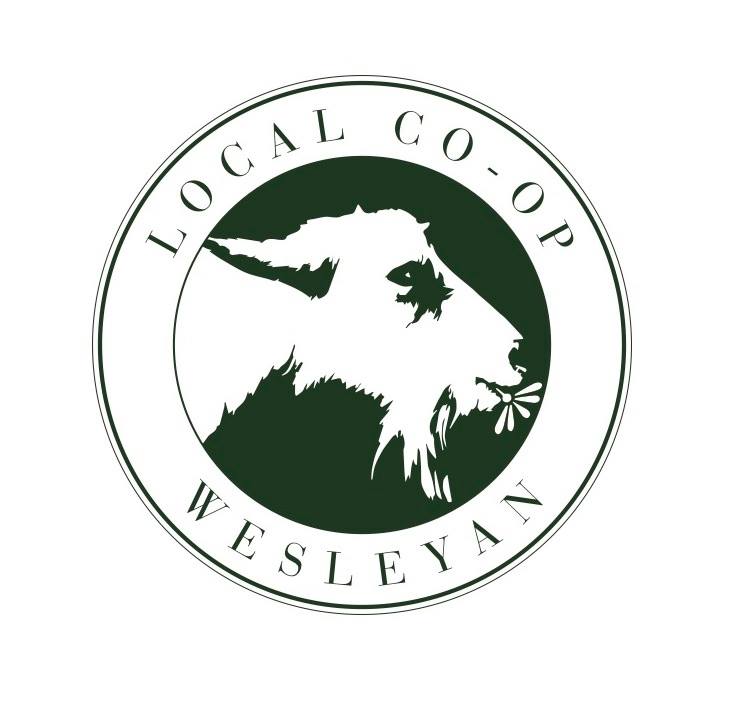
The Wesleyan Local Food Cooperative held its first pickup of the semester on Wednesday, Oct. 13 after closing due to the pandemic in spring 2020. Participating students, faculty, and staff can purchase shares in individual food co-ops—each corresponding to different food types, such as bread or produce—with points, check, cash, or credit card and pick up food on Wednesdays from 5 p.m. to 7 p.m. in the Usdan Multipurpose Room.
This semester’s Food Cooperative will run for eight weeks and includes individual bread, cheese, coffee, dairy, mushrooms, produce, seitan, and tofu co-ops. While fall 2021 co-op signups are now closed, spring 2022 signups will open in February.
Due to the pandemic, the Food Cooperative was unable to operate safely for the past three semesters. While it was able to return this semester, COVID-19 continues to impact participation. According to Operations Coordinator Annie Thompson ’22, around 350 people are currently participating in the different co-ops, down from around 600 before the pandemic. Thompson believes the decrease is due in part to decreased awareness of the Food Cooperative among current juniors, for whom the Food Cooperative was not an on-campus presence when they were sophomores because of the pandemic.
“We were bound to have a smaller size this semester,” Thompson said. “But honestly I’m not super phased by it because I was a little worried about the sheer number of people and getting in trouble with having too many people in the space because of COVID, so the lower numbers this semester I think are kind of a good start to slowly ramp co-op up again. Hopefully, the numbers will be a little bigger next semester.”
The Food Cooperative was started in 2012 and aims to provide students with sustainably sourced food at lower prices and support local businesses.
“The idea is that it’s just a way to get more of Wesleyan’s money into the community, instead of staying in this little bubble, which is what often happens here,” Thompson said. “And just to support local businesses and also provide cheaper food options on campus generally, because WesShop is ridiculously marked up.”
Various businesses, mostly local, sell products to the Food Cooperative. Horse Listeners Orchard provides the Food Cooperative with produce grown at the Orchard and sourced from around the area.
The Food Cooperative is run by a group of approximately 25 volunteers, overseen by Thompson and Volunteer Coordinator Maren Beriss ’22. Two to three students organize each individual co-op, placing orders with food sellers and giving the invoices to Thompson.
“It’s kind of a trickle-down thing,” Thompson said. “I think what’s really fun about running co-op is that…it sometimes feels like half the school is all congregated in the Usdan basement. It’s a really fun social time, everyone gets to hang out with each other.”
Bon Appétit facilitates payment for food co-op, but ultimately the cooperative is a student endeavor.
“We are just a group of volunteers,” Thompson said. “We buy food at wholesale prices and then just give it to students at the wholesale prices that…we get it for. So we’re not making a profit or anything.”
The Sustainability Office also supports the Food Cooperative. Sustainability Director Jen Kleindienst updates the Food Cooperative webpage, communicates with the Sustainability Office, and emails information to faculty and staff.
“I set up a webpage on the sustainability website a couple years ago…so that anyone wanting to know about co-op could learn more at any time (there wasn’t great transparency before on costs/what you could get with each co-op before people got to the form before),” Kleindienst wrote in an email to The Argus.
In addition to updating the Food Cooperative webpage and spreading the word about the program, Kleindienst has participated in the food co-ops almost every semester since she started working at the University in 2012.
“I appreciate the convenience of weekly pickups, and access to local foods that…can be hard to get in stores locally or without driving long distances,” Kleindienst wrote.
In previous semesters, individual co-ops have included preserves and meat. However, due to issues with the suppliers, neither are being offered this semester. While Thompson would like to offer preserves again, she does not currently plan to bring the meat co-op back.
“Our meat vendor in the past has just been really flaky and hard to work with,” Thompson said. “And meat is not the most sustainable product in the first place. So I was like, let’s just boot that out of here…. At the current moment [the meat co-op] is not my highest priority.”
Looking forward, Thompson hopes to bring in more first-years and sophomores who can carry on organizing the Food Cooperative when she leaves.
“I have to find someone to take over for me when I graduate,” Thompson said. “I think something that tends to happen every year is that it’s a lot of juniors and seniors that are volunteering and involved…. This semester, I’ve been trying to be very diligent about keeping job descriptions and having some sort of institutional knowledge and a shared Google Drive so that when I graduate everything doesn’t fall apart.”
Elias Mansell can be reached at emansell@wesleyan.edu.
Correction: This article mistakenly said that the Sustainability Office funds the Food Cooperative. While they support the cooperative, they do not fund it. This article has been updated to include this change.



Leave a Reply